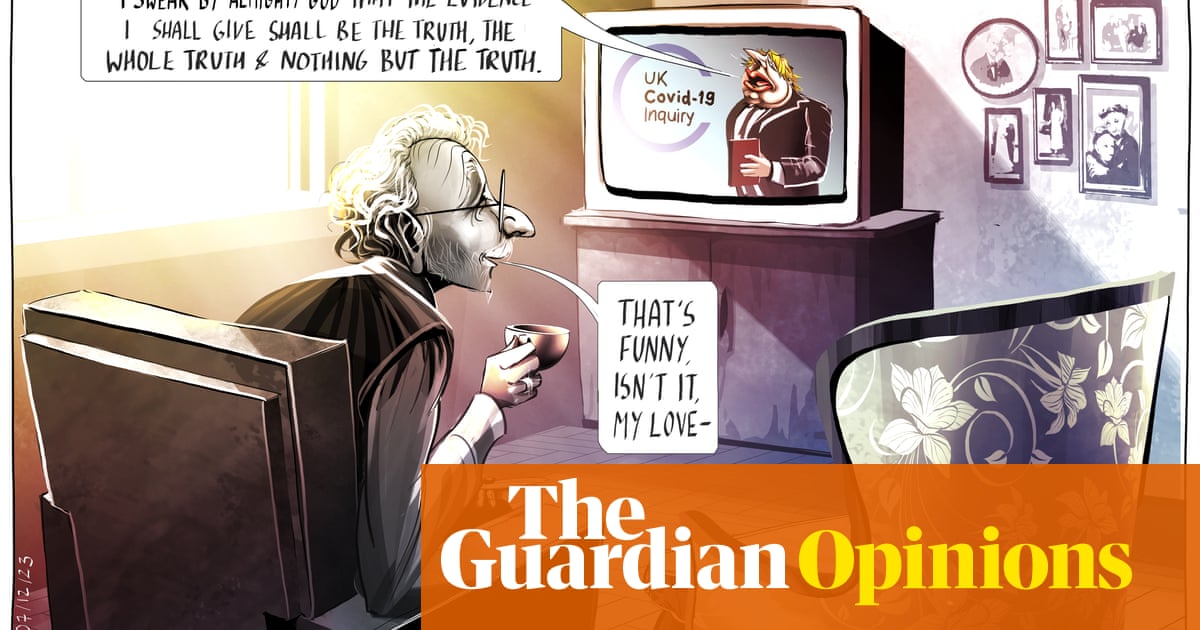
ever bet more than you can afford to lose. The old gambler’s adage springs uncomfortably to mind as the government once again prepares to roll the pandemic dice, pushing ahead with opening English pubs this weekend even as a fresh outbreak forces Leicester back into lockdown. For those lucky enough to live in places where Covid-19 seems firmly under control, a night out probably means risking little more than a hangover. But in some parts of the country, so-called super Saturday looks alarmingly like chucking petrol on a barbecue.
Rumours abound of other towns teetering on the brink of being locked down again, although names should be taken with a pinch of salt; working out where fresh outbreaks are brewing is about far more than simply spotting high case numbers. After Leicester, the highest infection rates per 100,000 people are in Bradford and Barnsley, Rochdale and Oldham, but the most recent reports show infections falling in all four. Doncaster and Bolton have lower numbers but seem to be heading ominously upwards, and in Bedford, where cases are unusually high for the south, the council this week halted the reopening of children’s playgrounds as a precaution.
We are entering perhaps the most socially divisive stage of the pandemic, when much of the country has a shot at recovery but an unlucky few communities are held back by new waves of infection. And the early signs are that it’s towns already likely to struggle with economic recovery who may be most exposed to this uncertain, stop-start future. Those dice we’re rolling now may be loaded against people who can’t afford to lose.
What many of those hotspots have in common is high rates of poverty – meaning people can’t afford not to work if they feel sick, and are more likely to live in overcrowded conditions – and, in some cases, large ethnic minority populations, known to be more vulnerable to Covid-19. There may also be a connection with precarious employment, where workers fear being sacked if they take time off or complain about unsafe conditions. (The campaign group Labour Behind the Label this week claimed some workers in Leicester’s garment industry, parts of which are notorious for sweatshop practices, had come under pressure to keep working while sick.)
City neighbourhoods full of professionals still working safely from home, meanwhile, seem to be faring better than former mill towns in the north-west dominated by warehouse and factory work, jobs that can only be done in person. If nothing changes, we may be headed for a two-speed recovery where towns and cities that were already “left behind” struggle to contain the virus, falling further back as a result, while regions better placed to control it race ahead towards recovery.
The early lesson from Leicester, which has seen central and local politicians blaming each other, is that if local government is to take the lead in stamping out local outbreaks, as the health secretary wants, they need the tools to do the job. In Covid-19 hotspots, there are widespread concerns about what Debbie Abrahams, Labour MP for Oldham and Saddleworth, and a former public health consultant, calls a “fragmented and commercialised” testing system patched together in a hurry. Local public health experts can easily access test results carried out by the NHS, but must sign a confidentiality agreement to get hold of “pillar two” results from tests carried out by private sector labs and drive-in centres. That has meant delays and sometimes confusion over how far they can use the private sector data to warn specific communities at risk without breaching confidentiality.
There are real concerns too over whether councils already on the verge of being bankrupted by Covid-19 have the resources for this new battle, despite this week’s cash injection from central government. And while ministers have promised support for Leicester businesses that can’t reopen when their neighbours do, a big question mark lingers over what will happen once the furlough scheme is phased out this autumn if local lockdowns lead to people being laid off all over again. It would be wholly wrong for people forced into local lockdowns to bear the financial cost alone, when they’re protecting the rest of us from a second wave. But if the rest of the country is roaring ahead without them, will they be quietly forgotten?
There are solutions to all these problems, but they don’t lie in breezy talk of playing whack-a-mole with the virus, as if nobody could guess where it would pop up next. The truth is, there’s a pattern here, which isn’t just recognisable but grimly predictable. We already know this to be a virus that seeks out our weaknesses, seeping through cracks in an unequal society. We can’t afford to let it drive us any further apart.
• Gaby Hinsliff is a Guardian columnist












